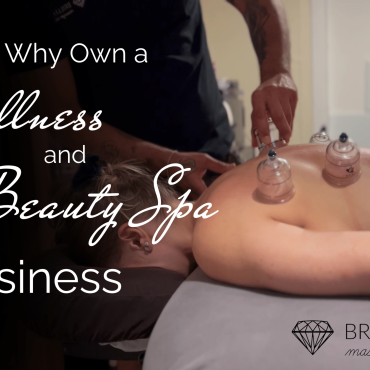Massage therapy has many benefits, but detoxification is not one of them.
Every time I hear- massage removes toxins, I cringe. that is not a correct statement. Massage can make you feel a little sore and tired, but it is not because of the toxins invading your body. It is because the pressure was too hard for your body, and your body is not used to massage, you got sore, its like a workout for your muscles that is why you are sore. Also you might of been a little dehydrated when you got a massage or you have an underlying condition/taking medication hat makes you more prone to react negatively to a massage. That’s it.
Old myths die hard. Some massage therapists and many clients still believe massage releases toxins—and massage therapists should avoid perpetuating this misinformation and instead educate clients on the truth when the topic arises.
Is is not scientifically proved how massage removes toxins, because it doesn’t, or if it does it’s at least not the ones we thought it did.
What Are Toxins?
Another issue is that people use the words toxin and detoxificationincorrectly. Here are the definitions of those words from Merriam-Webster:
Toxin: “a poisonous substance that is a specific product of the metabolic activities of a living organism and is usually very unstable, notably toxic when introduced into the tissues, and typically capable of inducing antibody formation.”
Various types of toxic substances occur, and include those made in the body as part of physiologic processes and environmental toxins that are ingested, injected, inhaled or absorbed.
Body-Produced Waste Products
Five organs process body-produced waste products: the skin, lungs, kidneys, liver and intestines. Our bodies’ organs know how to process such products.
Bio-transformation is the process by which a substance changes from one chemical to another by a chemical reaction within the body. Only when normal homeostatic processes break down do these types of substances accumulate and cause accumulation of toxins in the body.
There are three main types of body-produced wastes:
- Catabolic waste remains after the breaking down of large molecules into smaller ones for body processes and are removed from the body through the skin, kidneys, lungs and intestines. Urea, ammonia and uric acid are the three main wastes eliminated. Water is required to excrete these waste products. (This is why we need to stay hydrated.)
- Metabolic waste is produced when a cell uses oxygen and nutrients to create energy. Carbon dioxide is the main waste product exhaled through the lungs. (This why we need to exhale.)
- Digestive waste is what remains after the digestion and absorption of food. These solids are eliminated through the colon. (This is why we need to have regular bowel movements.)
Yet, the ongoing confusion and claims that massage can flush out toxins—especially lactic acid—persists. Massage does not flush lactic acid out of the muscles because there is no lactic acid left in the muscles after about an hour. the soreness we feel is actually from torn muscle fibers during strenuous exercise.
Everything we do requires energy. This energy comes from glucose through a process called glycolysis. Glucose is broken down (metabolized) into a substance called pyruvate. When breathing does not supply sufficient oxygen, the body temporarily converts pyruvate into a substance called lactate, which allows glucose breakdown to continue.
The working muscle cells can continue this type of anaerobic energy production for a few minutes, but the lactate levels in the tissues increase. High lactate levels increase acidity in the tissues, resulting in the burning sensation experienced during heavy exertion.
Once the body slows down, oxygen becomes available and lactate reverts back to pyruvate and a shift back aerobic metabolism occurs.
The Cori cycle, or lactic acid cycle, is the physiological mechanism where lactate, produced by glycolysis of glucose in contracting muscle, is converted back to glucose in the liver and returned via the circulation to the muscles. This process can take a few minutes up to an hour.
Environmental Toxins
We are surrounded by persistent organic chemical pollution.
Toxins from the environment are considered poisons and are more difficult for the body to process and eliminate than are body-produced toxins.
Persistent organic pollutants are chemicals that do not easily break down and can remain in the environment and the body.
These environmental toxins can be found in plants and venom, and produced by viruses, bacteria, fungi and protozoa, naturally occurring metals or synthetically manufactured substances such as pesticides, herbicides, fungicides, gasoline, fire retardants and more.
Once environmental toxins are in the body they can excreted, stored or bio-transformed.
Bio-transformation is the chemical change the body makes in chemical substances so the substance can be used or eliminated.
The liver is the primary bio-transforming organ due to its large size and high concentration of bio-transforming enzymes. The kidneys and lungs are next.
The issue with persistent organic pollutants is that biotransformation processes do not efficiently or effectively change these substances into other chemicals that can be eliminated by normal processes, and they become stored in the tissues.
The primary sites in the body for accumulation of persistent organic pollutants are adipose tissue, bone, and the liver and kidneys. This accumulation is implicated in many chronic health issues.
Sweat On
Research does indicate that heavy perspiration can help the body eliminate some, but not all, persistent organic pollutants. Therefore, sweating can be considered a form of detoxification, when it comes to environmental toxins..
Fluid excreted by the sweat glands consists of water containing sodium chloride and phosphate, urea, ammonia, sulfates, creatinine, fats and other waste products. Regular sessions of induced perspiration can eliminate some of the environmental toxins stored in body tissue.
Activities that create sweating are exercise and sauna. Water lost during sweating needs to be replaced by drinking clean water.
While massage can have a slight impact on these bio individual activities, it is not impactful enough to call it a detoxifying tool.


